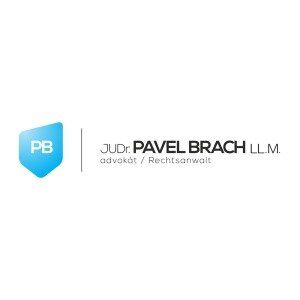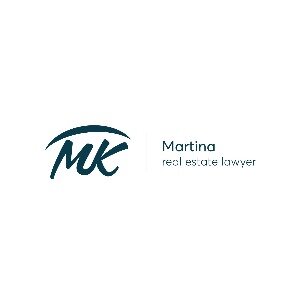Best Housing, Construction & Development Lawyers in Czechia
Share your needs with us, get contacted by law firms.
Free. Takes 2 min.
Free Guide to Hiring a Real Estate Lawyer
Or refine your search by selecting a city:
List of the best lawyers in Czechia
About Housing, Construction & Development Law in Czechia
Housing, construction, and development law in Czechia is a broad field that encompasses various regulations and legal standards governing residential and commercial real estate development. The legal landscape is shaped by national law, European Union directives, and local municipal regulations. This area of law addresses the administration and enforcement of building codes, zoning laws, property rights, contract formation, and the resolution of disputes related to construction and real estate development. With a rapidly evolving real estate market and increasing urbanization, understanding the complexities of these laws is crucial for anyone involved in building or property development.
Why You May Need a Lawyer
There are several situations where consulting with a legal professional in the field of housing, construction, and development in Czechia might be necessary:
- Negotiating and drafting construction contracts to ensure terms are fair and clearly defined.
- Resolving disputes over contract breaches, property boundaries, or construction defects.
- Navigating complex zoning regulations and obtaining necessary building permits.
- Legal assistance with property acquisitions, sales agreements, or lease negotiations.
- Addressing issues related to environmental regulations and compliance.
- Understanding homeowners’ rights and landlord-tenant relationships.
Local Laws Overview
Housing, construction, and development activities in Czechia are primarily governed by the Building Act and the Civil Code, along with various other regulations. Here are some key aspects:
- Building Act: This outlines the processes for obtaining construction permits, determining zoning plans, and sets forth safety and environmental standards.
- Civil Code: It provides the framework for contracts related to real estate transactions, rights, and obligations of the parties involved.
- Zoning and Planning: Local municipalities are responsible for zoning laws that dictate what types of structures can be built in certain areas and under what conditions.
- Environmental Regulations: These cover the protection of natural resources, the impact of construction on the environment, and the requirements for sustainable building practices.
- Health and Safety Standards: Strict compliance with health and safety regulations is mandatory to ensure the welfare of workers and the public.
Frequently Asked Questions
What is the process for obtaining a building permit in Czechia?
You must apply through the local building authority, providing necessary documentation like project plans, property ownership proof, and environmental impact assessments.
Are there specific regulations for constructing green buildings?
Yes, there are regulations that encourage sustainable building practices, focusing on energy efficiency, resource conservation, and minimizing environmental impact.
How can zoning laws affect my construction project?
Zoning laws can determine the type of buildings you can construct, their usage, and certain design elements. It's crucial to consult the local zoning plan before proceeding.
What are the most common types of construction disputes?
Common disputes include disagreements over contract terms, delays in project completion, construction defects, and non-compliance with safety standards.
What rights do tenants have in Czechia?
Tenants have rights to a safe living environment, fair rental terms, privacy, and protection against unlawful eviction under the civil law framework.
What should I do if I discover a construction defect after purchase?
Contact a lawyer to review the terms of your contract and begin the process of seeking remedies, which could include repair, price reduction, or contract withdrawal.
Can a purchase contract for real estate be canceled?
Under certain conditions, like fraud or non-fulfillment of contractual obligations, a contract may be annulled. Legal advice is recommended to assess the specific situation.
How long does it typically take to resolve a construction dispute?
Resolution time can vary significantly, depending on the complexity of the issue and whether it can be resolved through negotiation, mediation, or requires litigation.
What legal aspects should I consider when developing commercial property?
Consider zoning restrictions, environmental compliance, potential property liens, lease agreements, and construction contract terms.
Is insurance mandatory for construction projects?
While not mandatory by law, it is prudent to have builder's risk insurance and liability insurance to protect against unforeseen damages and legal claims.
Additional Resources
If you need more information or legal assistance, here are some useful resources:
- Ministry of Regional Development: Provides guidance and regulations related to housing and urban development.
- Czech Chamber of Commerce: Offers resources for businesses involved in construction and real estate.
- Czech Bar Association: Can help you find qualified lawyers specializing in housing and construction law.
- Local Municipal Offices: For specific zoning and building permit queries.
Next Steps
If you require legal assistance in housing, construction, and development, consider taking the following steps:
- Identify the specific legal issue you are facing to better communicate your needs.
- Consult with a legal professional experienced in Czech housing and development laws.
- Gather all relevant documents, such as contracts, permits, and correspondence, to assist your lawyer in assessing your case.
- Consider mediation or negotiation if disputes arise to potentially avoid lengthy legal proceedings.
- Stay informed about changes in laws and regulations that may affect your case or project.
Lawzana helps you find the best lawyers and law firms in Czechia through a curated and pre-screened list of qualified legal professionals. Our platform offers rankings and detailed profiles of attorneys and law firms, allowing you to compare based on practice areas, including Housing, Construction & Development, experience, and client feedback.
Each profile includes a description of the firm's areas of practice, client reviews, team members and partners, year of establishment, spoken languages, office locations, contact information, social media presence, and any published articles or resources. Most firms on our platform speak English and are experienced in both local and international legal matters.
Get a quote from top-rated law firms in Czechia — quickly, securely, and without unnecessary hassle.
Disclaimer:
The information provided on this page is for general informational purposes only and does not constitute legal advice. While we strive to ensure the accuracy and relevance of the content, legal information may change over time, and interpretations of the law can vary. You should always consult with a qualified legal professional for advice specific to your situation.
We disclaim all liability for actions taken or not taken based on the content of this page. If you believe any information is incorrect or outdated, please contact us, and we will review and update it where appropriate.
Browse housing, construction & development law firms by city in Czechia
Refine your search by selecting a city.











